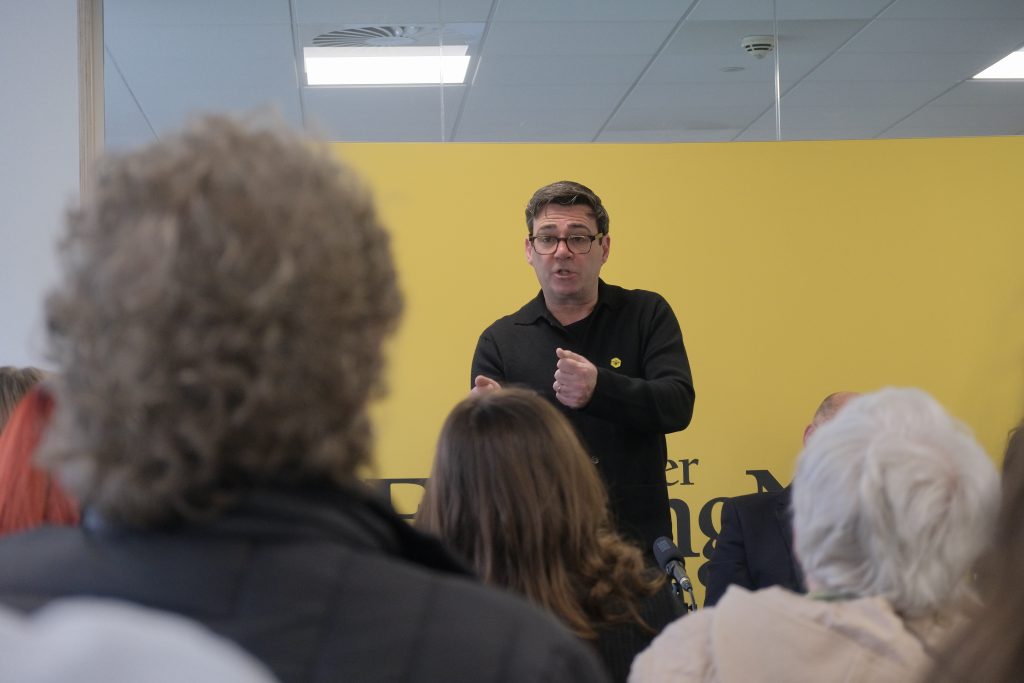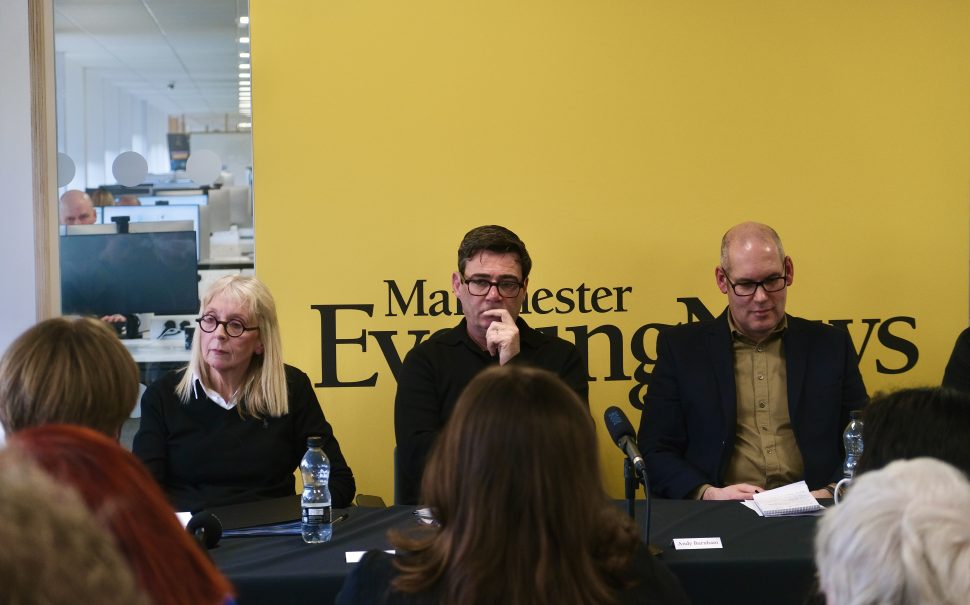The mayoral hustings at the Manchester Evening News office was a chance for candidates to stake their claim for the job with policing, transport and housing at the heart of discussions.
Five out of the six declared candidates were present, where a room of journalists, students and members of the public questioned their plans for Greater Manchester.
The discussion, where quick-fire questions were aimed at the unprepared candidates, ranged from the Greater Manchester Police, to housing and environmental policy.
Candidates of all political colours were present, Andy Burnham (Labour), Laura Evans (Conservative), Jake Austin (Liberal Democrats), Hannah Spencer (Greens) and Dan Barker (Reform UK). The only man missing, was the Independent Nick Buckley.
The hustings kicked off with the concerns of young people in Greater Manchester, and when asked about what could be done to ease the cost of living pressures on young people, Burnham was keen to promote his education plans for the combined-authority.
His Manchester baccalaureate, or MBacc, scheme is central to his re-election campaign.
He said: “Mbacc is an equal alternative to the university route, two-thirds of our kids don’t go.
Burnham also said young people “need a path to the skyscrapers” in a city which he proudly claims is “growing faster than the UK economy”.
Burnham’s Bee Network expansion hopes to bring eight rail lines into the fold, comparing their introduction to the London Overground as part of the Transport for London network.
Additionally the touted the introduction of a concessionary Bee Network pass, at £40 for 18-21 year-olds.
Dan Barker of Reform UK, who defected from the Conservatives, expressed his desire to “get Manchester building”, arguing that Burnham’s focus on Manchester City centre was insufficient.
This sentiment was somewhat reflected by Jake Austin, who argued more needs to done to incorporate the suburbs with less reliance on the city centre.
He used the example of a journey between Stockport and Altrincham, which is a 20-minute car journey, but an hour-and-a-half slog into and out of town using the Bee Network.
Mr Austin also committed to improving cycling infrastructure, we said he wanted cycle paths to be ‘safe, often segregated and consistent’, but that bikes should also be allowed on trams, although didn’t give any further explanation of how that might be put into practice.
Landlords and rents were a big topic. Burnham repeated his plan to give all Greater Manchester residents the right to a property check, to ensure they are not being exploited by landlords.
In an issue that clearly has his attention, he said: “It is an inditement of the UK that a two-year-old boy died just two miles from here.” (A reference to Awaab Ishak, who died due to mould exposure, in his Rochdale home.)
He also said he was conscious of the need for improved student accommodation.

Laura Evans’ subsequent claim that “99 per cent of landlords are pretty good” was largely laughed off by Burnham and the audience, forcing her to revise the figure to the rounder 90 per cent.
Discussion of the Clean Air Zone scheme was a point of contention, with Conservative Laura Evans going as far to suggest that the zone represents a “ring around us like a prison”, and that she would endeavour to scrap it and the cameras which have been put up to enforce it.
Burnham said there would be no charges for drivers and that councils had to act in line with government policy. He defended the cameras, suggesting they help police to solve crime.
When policing was brought up by an audience member, the candidates were animated. Dan Barker was quick to call out ‘endemic problems’ with the Greater Manchester Police, promising ‘punishment for those who need it’.
While Laura Evans suggested that police were not given enough resources to deal with the city’s crime, she said the mayor had ‘abdicated the role to someone else’, by
Hannah Spencer promised she would set up an independent body to address complaints lodged towards GMP officers, adding: “I don’t think the police should be marking their own homework.”
The strong criticism of the police levied by candidates at Burnham put him on the defensive, he claimed that under his watch, crime was down six per cent, and burglaries had fallen by 20 per cent.
He made no meal of his desire to improve the public’s trust in police, expressing that although crime is down, trust in the service needs to go up.
In response, Mr Austin remarked: “Improvement is the only place to go when you are at the bottom.”
With the election on 2 May, there are likely to be more lively discussions and criticisms over the next two weeks.





Join the discussion
Where was Nick Buckley? Was he invited?